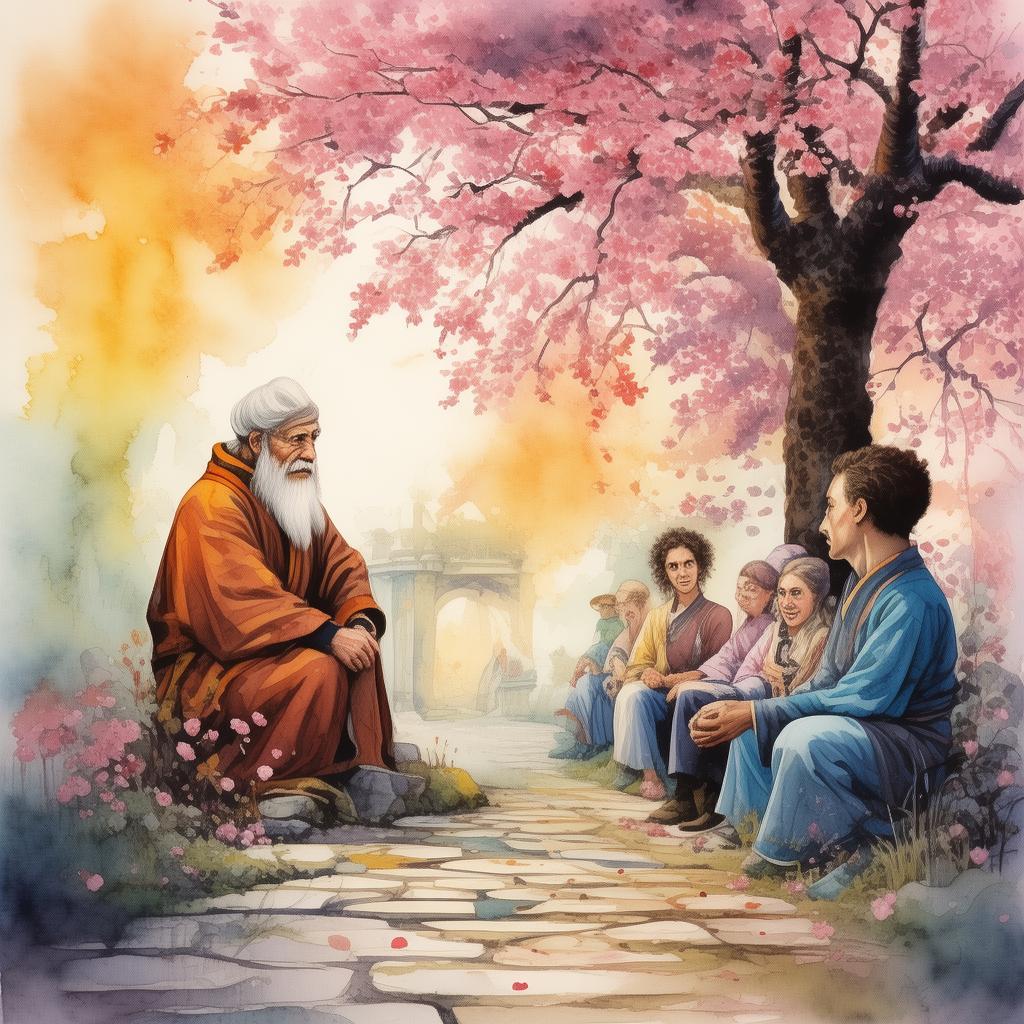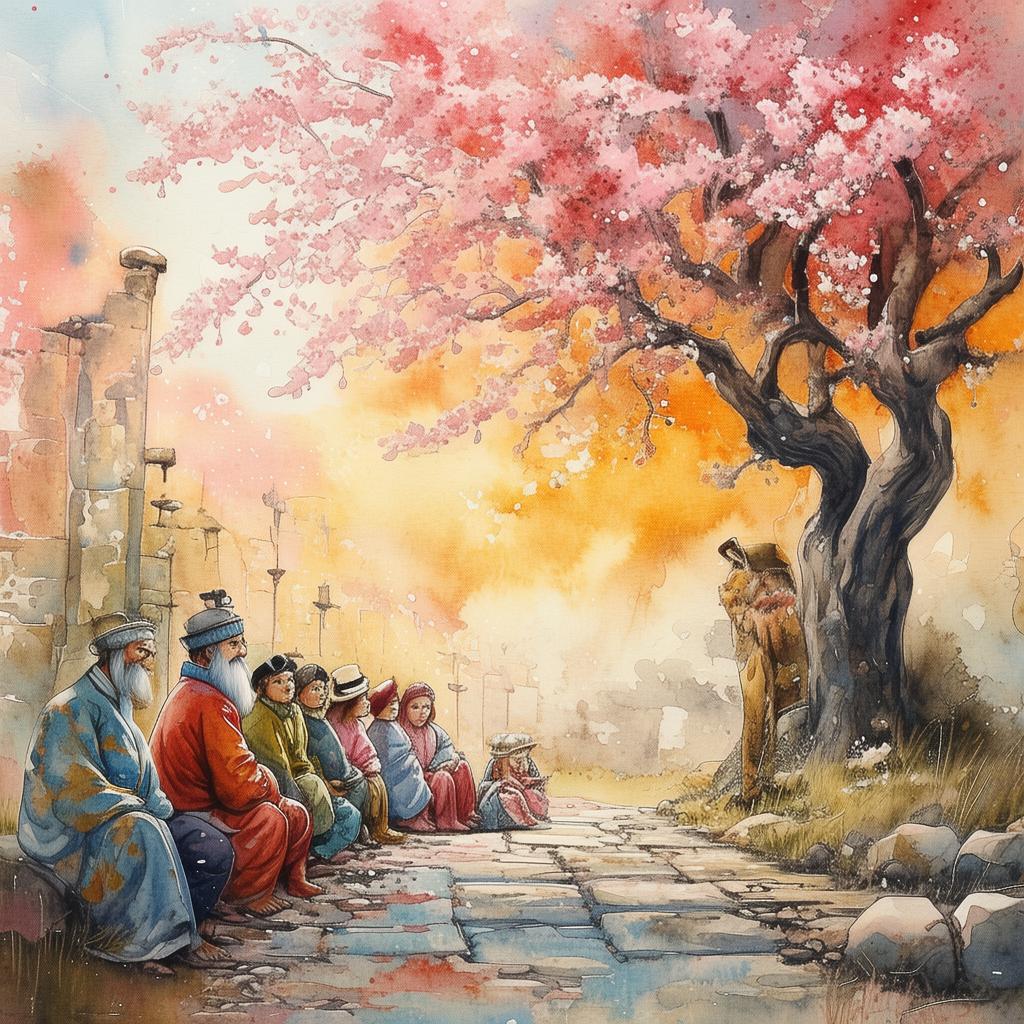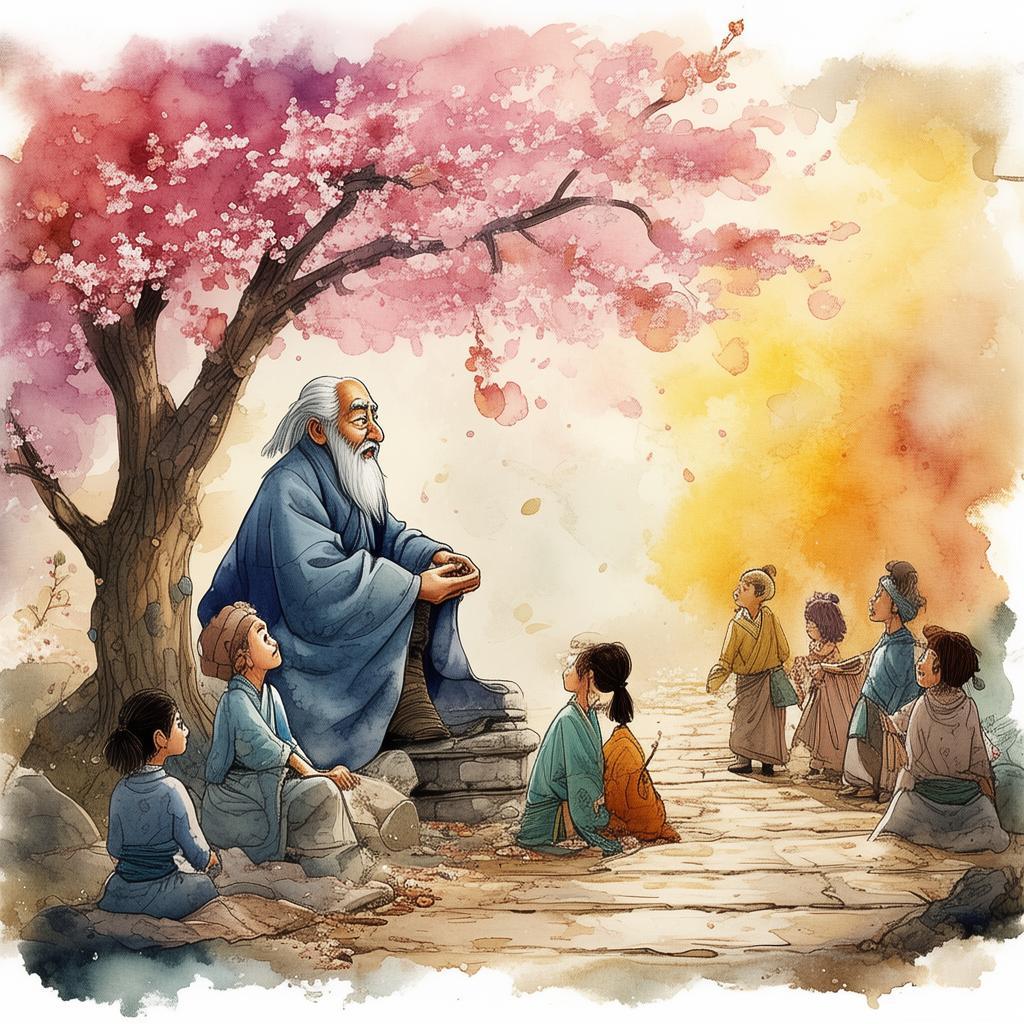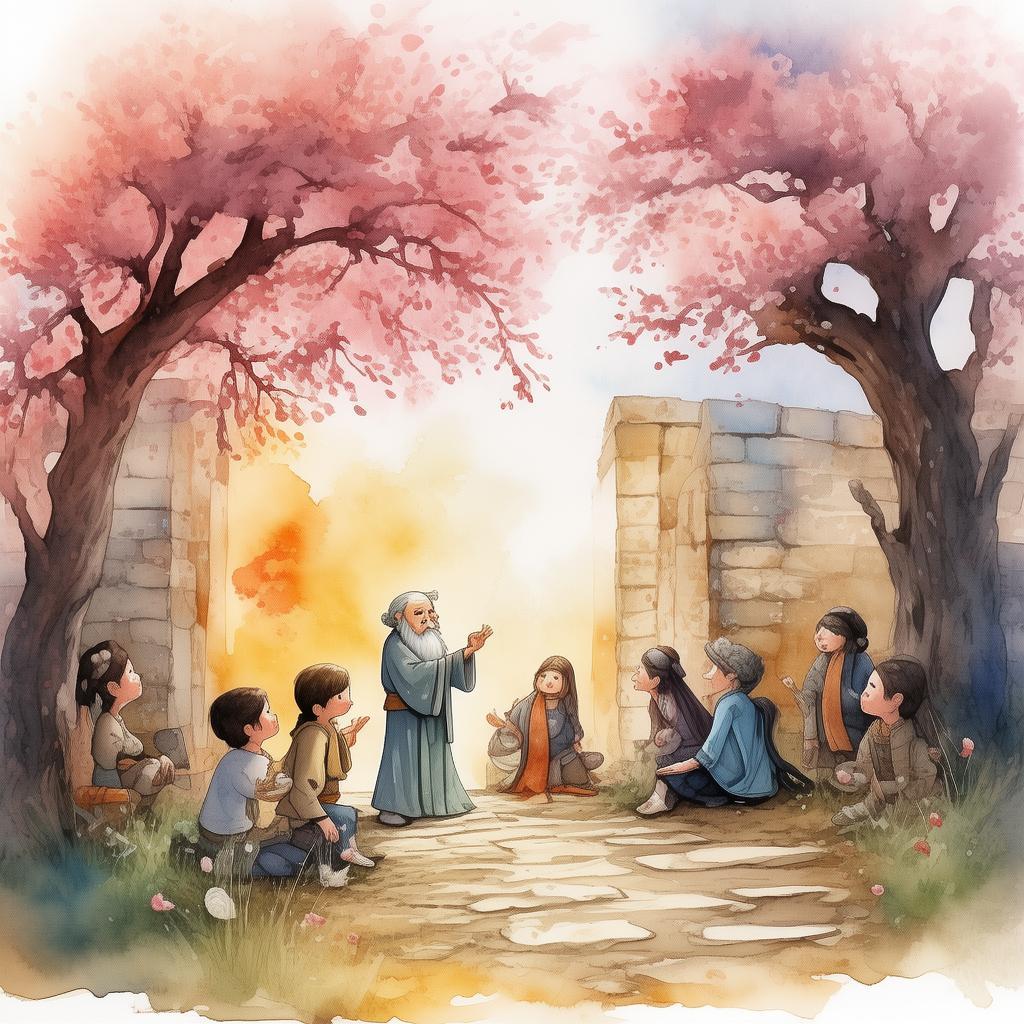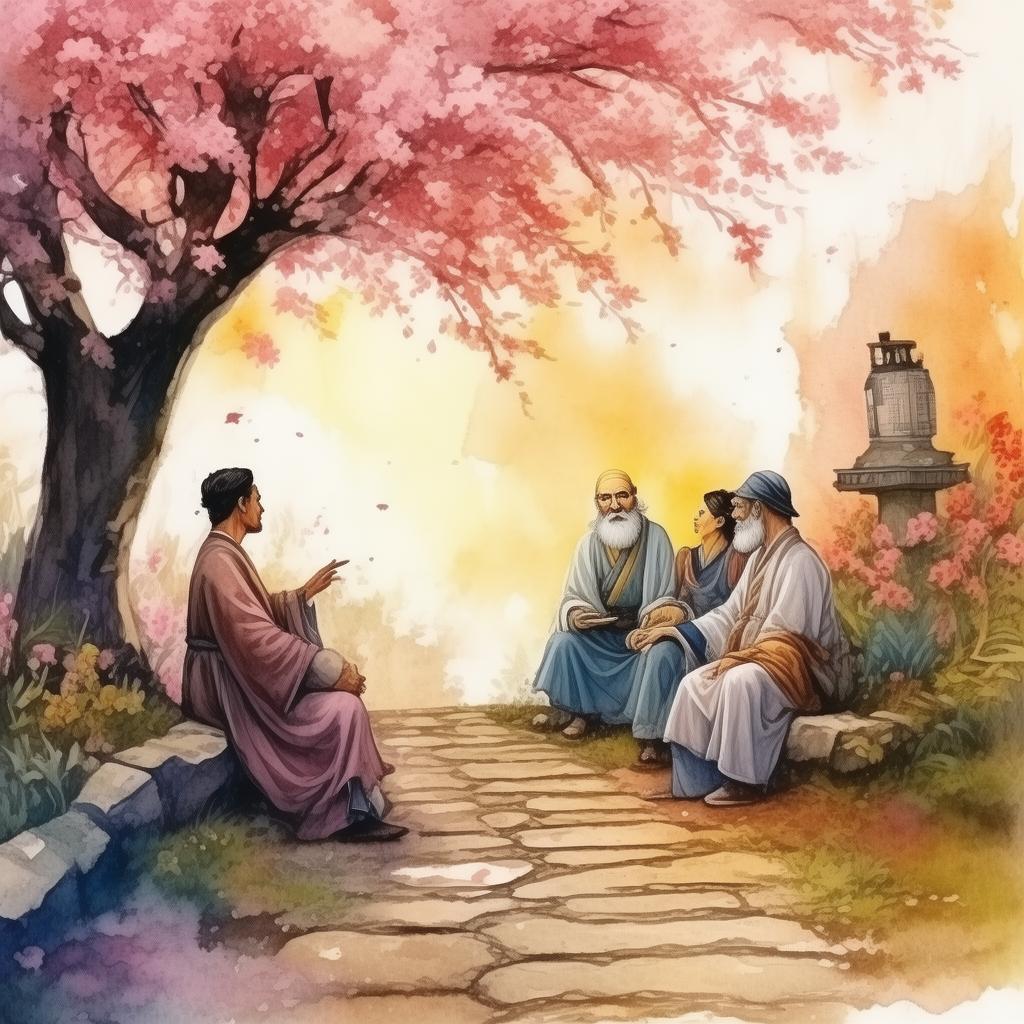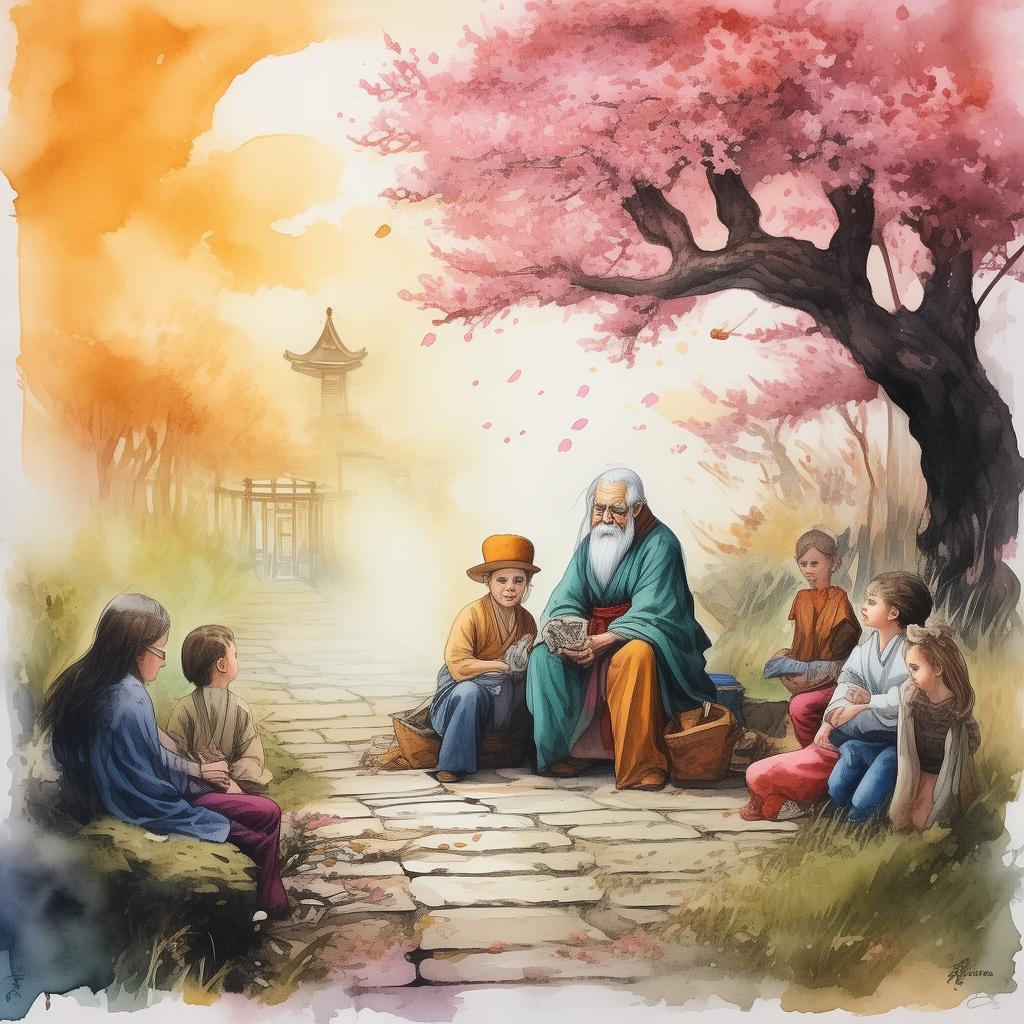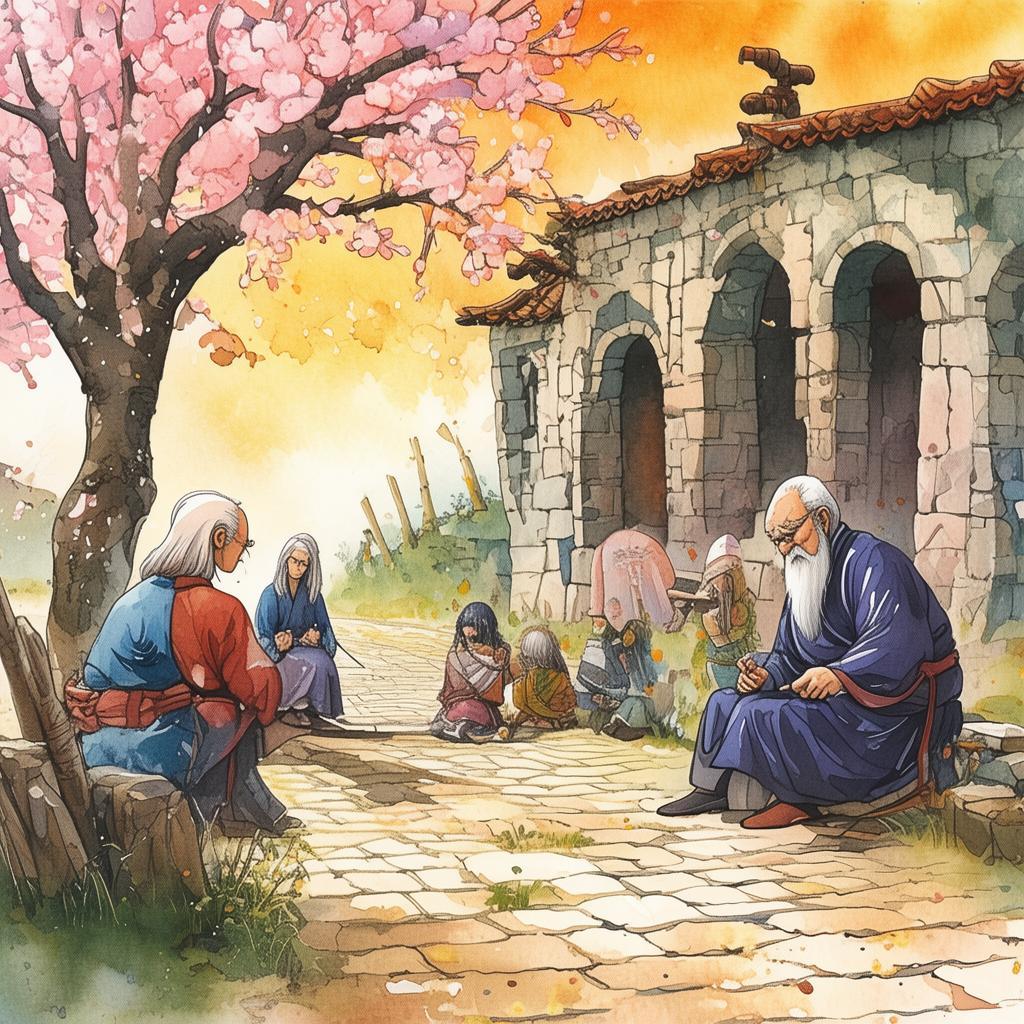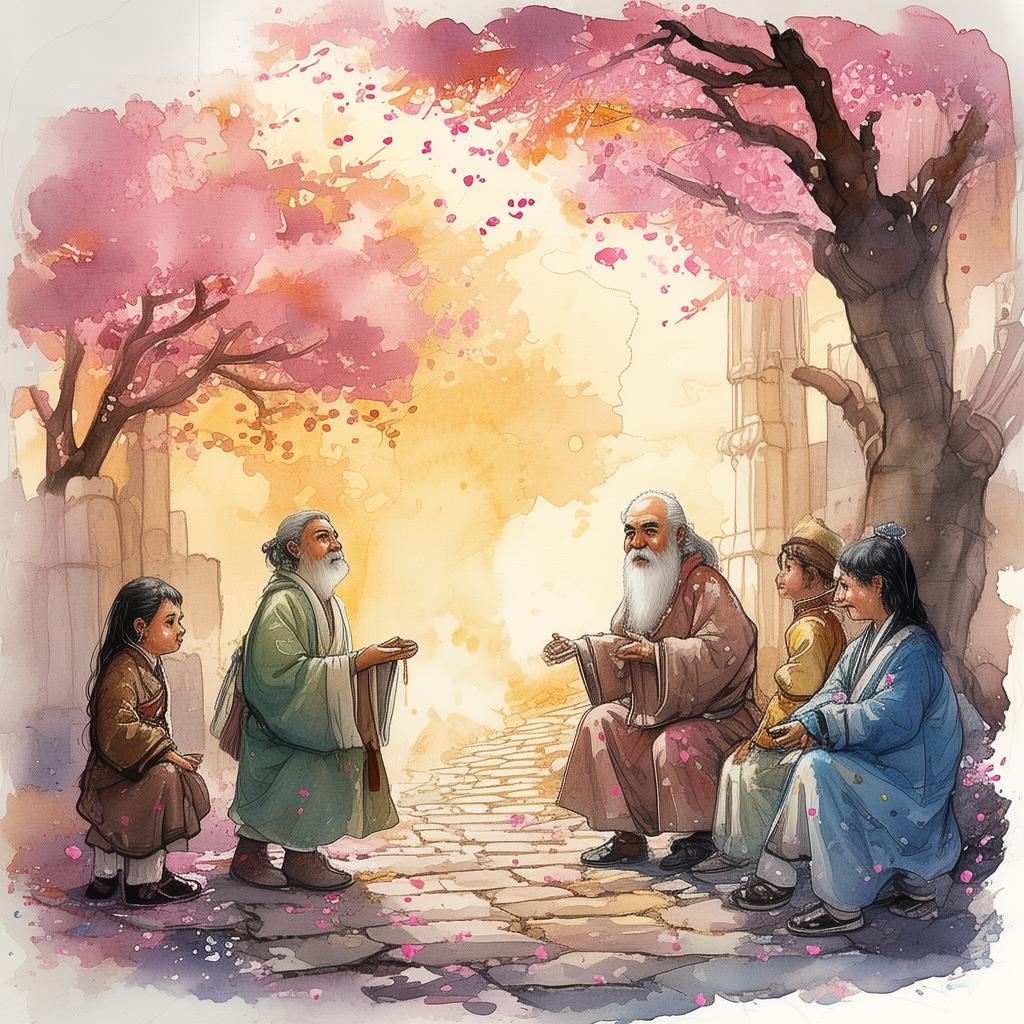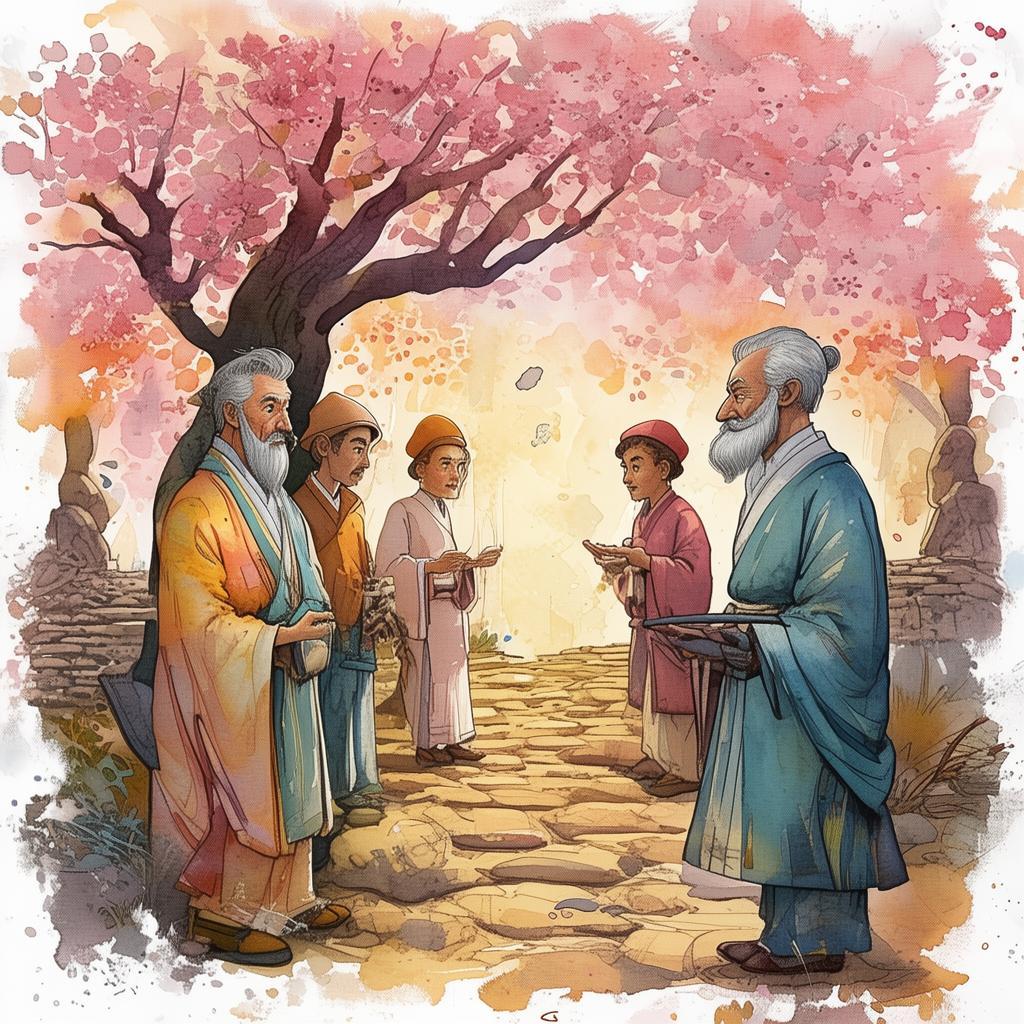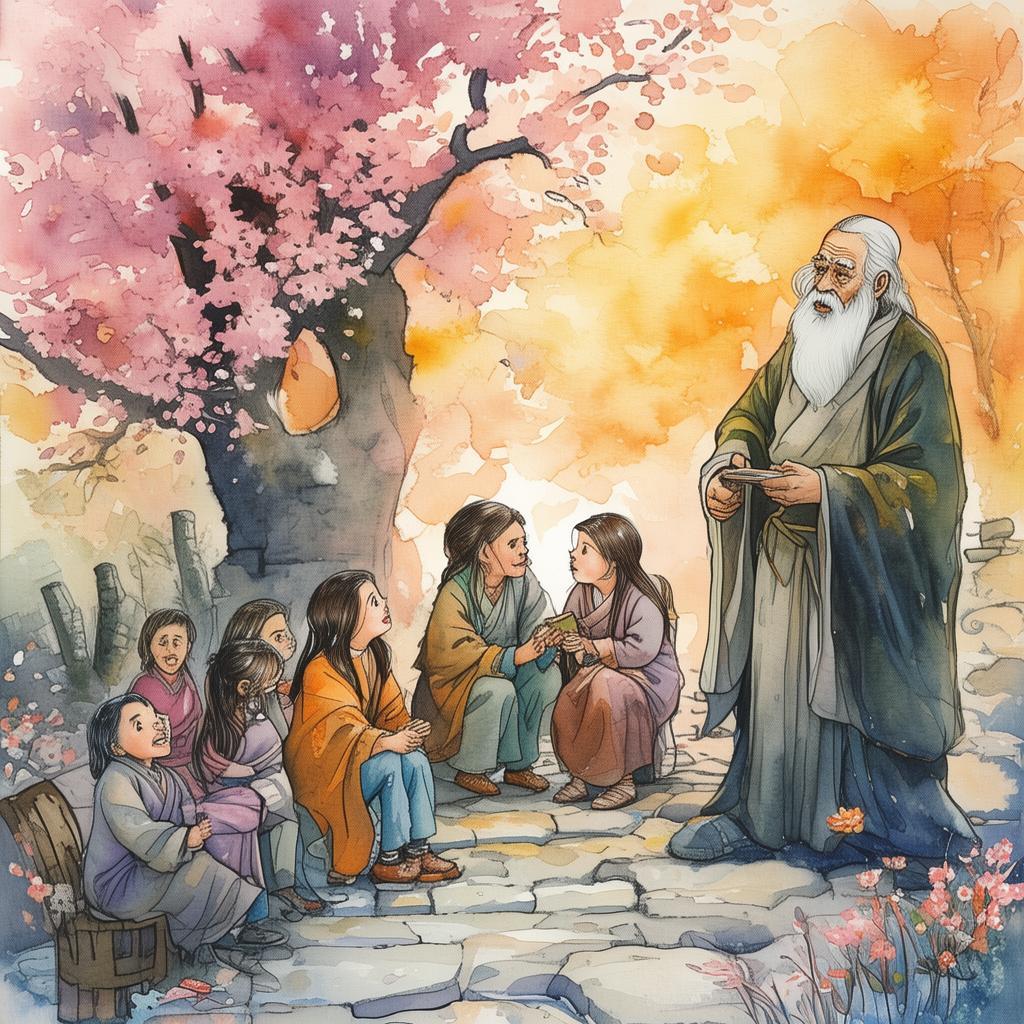Grain of Truth: The Parable of the Rice Sages
In the ancient land of Zhen, there was a time when the people were deeply enmeshed in the pursuit of wealth and power. The land was fertile, and the rice grew abundantly, but the hearts of the people were not filled with the same prosperity. Three sages, each with a unique perspective on life, decided to embark on a quest to uncover the true essence of wisdom.
The first sage, named Ming, was a philosopher who sought knowledge through the study of the natural world. He believed that the greatest wisdom could be found in the cycles of nature, the growth of the rice, and the rhythm of the seasons. Ming traveled to the fields where the rice was harvested, observing the farmers' toil and the meticulous care they gave to the crops.
One day, as he watched the farmers gather the rice, Ming noticed a single grain that had been left behind. Curious, he picked it up and examined it closely. To his astonishment, he saw that this grain was perfectly round, its surface smooth and unblemished. It was unlike any rice he had ever seen.
Ming took the grain to his mentor, the second sage, named Qing, who was a master of the martial arts. Qing had always believed that true strength and wisdom came from within, and that the body was a vessel for the spirit. He looked at the grain and saw it as a metaphor for the human spirit, resilient and unyielding.
"Look at this grain," Qing said, his voice filled with reverence. "It has withstood the trials of the earth, the sun, and the rain, yet it remains strong and unbroken. Just as our spirits must remain unyielding in the face of adversity."
The third sage, named Hong, was a healer who practiced the art of balancing the body and the mind. He saw the grain as a symbol of health and balance, and he believed that the key to wisdom was in the harmony of the body and the mind.
"Each grain of rice is a life force," Hong explained. "It teaches us that life is precious and that we must nurture it with care. Wisdom, then, is the art of living in harmony with the world."
The three sages decided to conduct a parable, using the grain of rice as a symbol of truth and wisdom. They gathered the people of Zhen and spoke to them of the grain's journey from the soil to the table, and how it represented the journey of life itself.
As the people listened, they began to understand that the true value of rice was not in its ability to fill their bellies but in the lessons it taught them about life. They learned that wisdom was not about accumulating wealth or power, but about understanding the world and themselves.
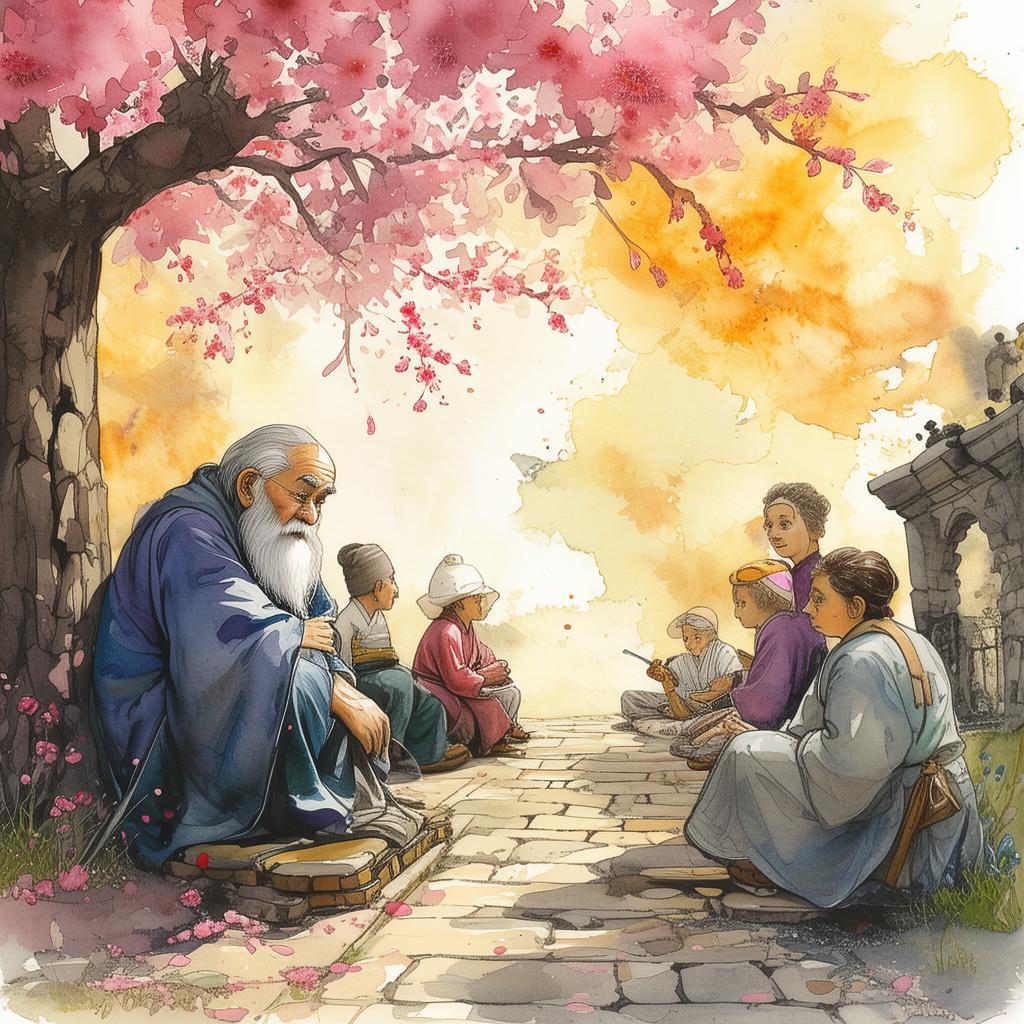
The grain of rice became a symbol of the truth that the sages had sought. It taught the people of Zhen that wisdom was not something to be sought in the distant lands or in the halls of power, but in the everyday moments, in the simple things, and in the lessons that life offered them.
Years passed, and the people of Zhen lived according to the wisdom they had learned from the grain of rice. They cultivated their land with care, respected each other, and sought balance in their lives. The land flourished, and the people thrived, for they had found the truth hidden within the simple grain.
The story of the rice sages spread far and wide, and it became a parable that was told for generations. It taught that wisdom could be found in the most unexpected places, and that the true essence of life was to be found in the pursuit of understanding and harmony.
In the end, the three sages returned to their studies, knowing that they had found the truth they sought. And as they sat beneath the banyan tree, they reflected on the journey that had brought them to this moment, and they smiled, for they had discovered that the greatest wisdom was not in the pursuit of knowledge, but in the sharing of it.
✨ Original Statement ✨
All articles published on this website (including but not limited to text, images, videos, and other content) are original or authorized for reposting and are protected by relevant laws. Without the explicit written permission of this website, no individual or organization may copy, modify, repost, or use the content for commercial purposes.
If you need to quote or cooperate, please contact this site for authorization. We reserve the right to pursue legal responsibility for any unauthorized use.
Hereby declared.
